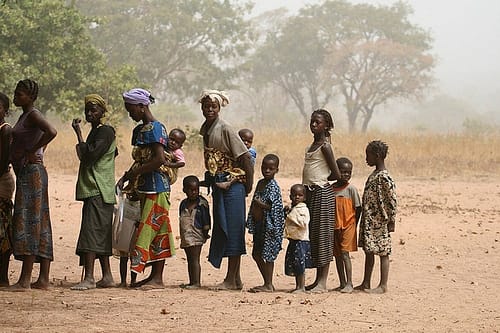A Diagnosis In A Jiffy

A typical rural clinic landscape like the ones Dad attended at Umniati Power Station, Redcliff and the Gaika and Connemara Mines from 1946 through to 1975. (Photo courtesy of the web)
A Diagnosis In A Jiffy
Dad liked company. Once I learned to behave and before I got into serious swimming I kept Dad company on the weekly trips to outlying afternoon clinics he had acquired at the Umniati Power Station, Redcliff, and the Gaika and Connemara Mines.
A Diagnosis In A Jiffy
In the heat of the cocoon of our car Dad would croon like Bing (Crosby) his version of You Must Have Been a Beautiful Baby… Together we would make up our own words to popular songs and belt them out. This way we ate up the miles. In no time we would pull up in front of whitewashed stones and tree trunks leading to a white washed rectangular clinic: generally two rooms flanking an open area to do paper work and dispense.
For that afternoon there would be a nurse on hand to assist him as he ploughed through thirty to forty patients.
While he was busy I did my homework on my lap. I climbed trees. I trailed antlions. I lay down on the ground and tickled their pits. I tricked those sickle shaped jaws into thinking something juicy was in the offering and hooked them out of their lairs. A quick tea and Marie biscuits at three fortified us to see the line through to the end. On the way home Dad helped me with my unsolved problems. We went over the spelling list for the day, and sang the times tables. Then we’d chat.
Sums were not my strong suite (actually nothing in the school line was my strong suite) but one day I observed, “Dad how come you need fifteen or even thirty minutes with a patient at the European surgery? That’s sixteen patients at most in about four hours but at the clinics you make a diagnosis in a jiffy? How many did you see today?”
“Well,” he said, “The Europeans are harder to diagnose and treat. Often they aren’t actually sick. They have financial troubles, marriage troubles, that sort of thing and you have to hear them out, offer solutions. Once the problem is solved their aches and pains go away. With the Natives, they’re coming as a last resort. The nyanga’s (witch doctor) treatment hasn’t worked and they’re desperate. Their disease is so advanced. I can make a diagnosis as soon as I walk through the door, or even before.”
“How come?”
“Often I can smell it. Typhoid smells yeasty like Midlands bakery when the buns come out, the eyes nervous, searching, the color of the government issue tea cups at the hospital. Lung abscess reeks of P.K. (picannini kia—lavatory) smells. The cough, before you even percuss! The fingers clubbed.
Then there’s the smell of Cape grapes from burns turned green. Two today! Children. Fires in the huts. Its criminal!
Liver failure smells like smelling salts, and the eyes again. You can tell so much from the eyes: yellow. So, in most cases, you don’t need a lot of time to make a diagnosis.
This medical practice is more interesting,” he went on. “Everything in the text book: all the advanced stages of all the parasitic infections. This is tropical infection heaven! I’ve quite a collection of microscope slides. Its an on going collection since my university days. I’ll show them to you if you like.”
“Dad, you know everything! “Why don’t antlions have an anus?”
“I don’t know about those kinds of bugs,” he said. “That kind of zoology was never my strong suite. You tell me.”
